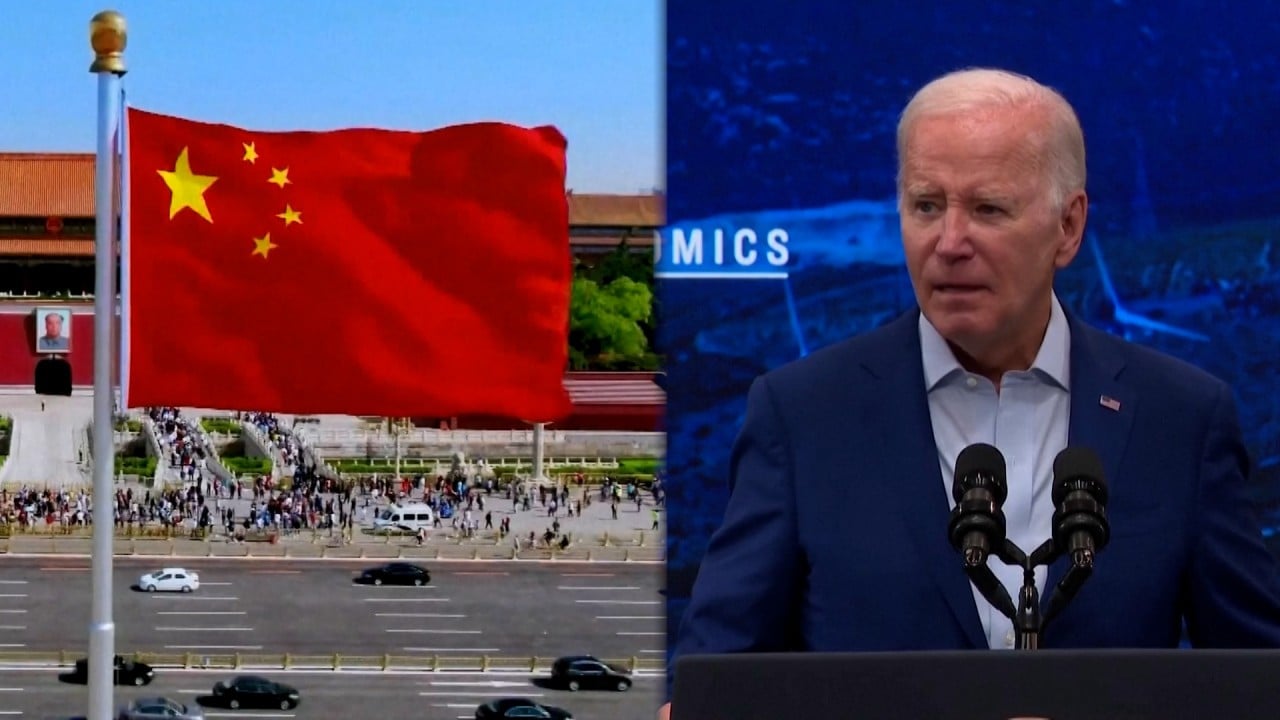
Clock ticks down for China-US science deal amid tech theft fears
- The White House has a few weeks left to decide whether to extend the life of a 44-year-old cooperation agreement
- Non-renewal could hamper efforts to find common ground between the two countries, analysts say
The White House is in a fix and has less than a month to make a decision.
The agreement laid out the terms for government-to-government cooperation in science, opening the way for academic and corporate interactions.
With an American push to hobble China’s advancement in core technology coupled with parallel efforts to find common ground for cooperation, Biden aides and officials remain tight-lipped on their intentions.
So, too, has the US State Department, which is responsible for implementing the agreement from the American side. Responding to a request for comment it said it “does not comment on pending or potential international negotiations or internal deliberations on negotiations”.
Beijing has shown willingness to renew, or even rework, the decades-long cooperation.
Chinese embassy spokesman Liu Pengyu said Beijing contacted the US side a year ago to “discuss” the renewal and “as far as we know, the US side is still conducting an internal review on the renewal of the agreement”.
“As the situation continues to evolve, both sides may consider making adjustments to the original agreement,” Liu said, adding that China was ready to discuss the “content and form” of the cooperation on the “basis of equality and mutual benefit”.
He said China “hoped” the US would “expedite the internal review before the expiration of the agreement”.
Some experts agree, saying another extension of the long-standing symbol of US-China cooperation would serve US interests.
Making a case for renewal, Deborah Seligsohn of the Centre for Strategic and International Studies, a think tank in Washington, said that as the first deal signed between Washington and Beijing after the normalisation of ties, the agreement was of “enormous historic significance”.
“The United States should not extend the agreement because Beijing wants to, but rather because it is in the United States’ clear self-interest to do so,” she said.
Seligsohn said the agreement had resulted in “many specific science and technology outcomes” that had greatly benefited the US and the rest of the world, from cooperation on the study of birth defects and influenza to fighting air pollution and HIV/Aids prevention.
Over the years scientists on both sides had also worked together on almost 100 protocols and annexes under the agreement, “specifically, a number of changes to intellectual property protections”, she said.
Seligsohn said non-renewal could complicate recent attempts to find areas of cooperation, including the “the types of people-to-people connections and educational exchanges” that Blinken agreed to promote during his visit to Beijing in June.
“There is a real risk that any such improvements, including access to key health information and the ability to train the United States’ next generation of China experts, will be put at risk if the agreement lapses,” she said.
Richard Suttmeier, a US-China science and tech cooperation expert at the University of Oregon, said letting the agreement lapse would not be “productive for finding the right terms for the larger relationship with China”.
“One could imagine the two sides finding other ways to cooperate on these global problems, and scientists themselves are often finding ways to cooperate on matters of mutual interest,” he said.
“The absence of an agreement, however, adds levels of difficulty to these interactions and may reduce the public goods benefits in the absence of a government to government framework.”
With China emerging as a scientific superpower, the flow of knowledge is going in both directions
The issue is complicated by national research and innovation but mutually beneficial cooperation is “certainly not impossible”, according to a US-China Economic and Security Review Commission report published in 2014.
The report, written by Suttmeier, also pointed out that activities such higher education opportunities in the US and transfers of American technology that “played a major role in development of Chinese wealth and power” were “largely outside the terms” of the agreement.
Suttmeier acknowledged that China had been the biggest beneficiary of the agreement – “largely because the US had been so far ahead of China in science and technology; there was less to learn from China than China could learn from the US”.
“Nevertheless, the US benefited in a variety of ways,” he said.
“Now, however, with China emerging as a scientific superpower, the flow of knowledge is going in both directions, so, in principle, the benefits to the US could be greater.”
Suttmeier said it would probably be a mistake to let the deal lapse and the two countries needed to come up with an agreement that reflected the “realities of the third decade of the 21st century”.
“Current deliberations in Washington are occurring in a politically fraught time, which makes executive branch action a matter of some delicacy,” he said.
“A short-term renewal would make sense if both parties committed to negotiate an agreement more suitable for current conditions.
“There certainly are risks associated with renewal, there are also significant risks by not renewing.”



